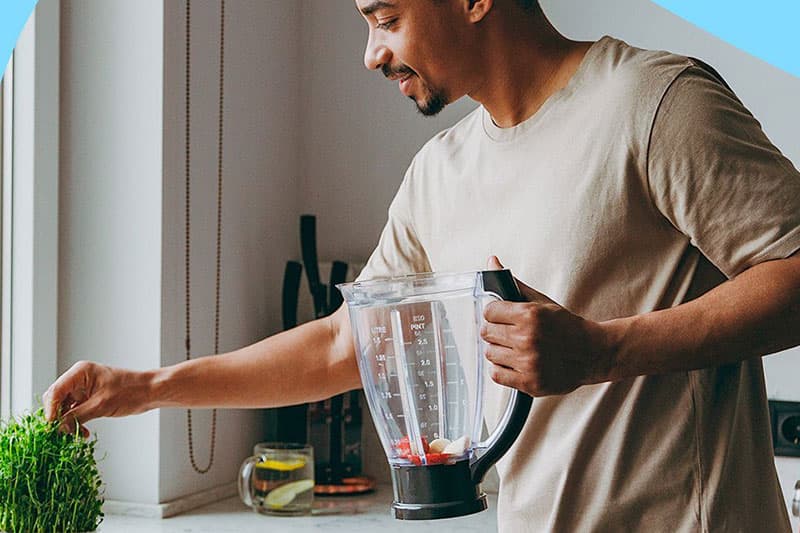5 Small Habits That Can Help Improve Your Health Over Time
When life is busy, making the changes you need to improve your health can feel like a challenge.
Chances are, you’d like to eat a healthier diet, and you know you should be working out three times a week, but you simply don’t have the time or the inclination.
Luckily, with less effort than you might think, you can make small changes to your lifestyle, and these changes soon become habits that are good for your health.
Here are five habits you can adopt starting right now. Before long, you’ll be reaping the rewards associated with better physical and mental health:
1. Drink More Water
The UK government’s Eatwell Guide recommends that we drink six to eight glasses of fluid a day. We need this amount of fluids to stay hydrated to aid digestion, for our heart and circulation, for temperature control, and for our brain to work well.
Water is cheap, caffeine-free, has no calories, and contains no sugars that can damage teeth.
How to Do It:
Keep a refillable water bottle with you at all times and get into the habit of sipping from it regularly. If you don’t like plain tap water, you can add flavour to it with strawberry slices, cucumber, fresh mint, fruit juice, or flavoured ice cubes straight from the freezer.
2. Be More Active
An ideal target for exercise should be 150 minutes of moderate-intensity activity or 75 minutes of vigorous-intensity activity a week, plus strengthening activities at least two days a week. However, if this sounds like a lot, don’t worry.
Exercise doesn’t have to be a long run or workout session at the gym. Remember that exercising just once or twice a week can reduce the risk of heart disease or stroke.
In addition, regular exercise helps you sleep better, manage stress and anxiety, and feel happier for all-around better mental health.
How to Do It:
Aim to do some type of physical activity every day, even if it’s only a walk during your lunch break.
Take the stairs instead of opting for the lift.
Get off the tube or the bus one stop early and walk the rest of the way.
Play football or go rollerskating with the kids at the weekend.
Try a home workout video on YouTube or Facebook in your own time.
Do a set number of push-ups, crunches, or burpees every single day.
Mow the lawn.
Cycle to work.
3. Start the Day With Breakfast
Instead of dashing out to work every morning on an empty stomach, start each day with a healthy breakfast. Breakfast should include carbs for energy and brain fuel, and protein to keep up your muscle mass and metabolism.
Protein will also help you feel full until your next meal, so you’re less likely to grab a slice of cake or a bar of chocolate with your morning coffee.
How to Do It:
A good healthy breakfast can be wholegrain cereal with milk and fruit, a banana, trail mix, eggs, yoghurt, cottage cheese, nuts or legumes.
Shop in advance for breakfast foods you enjoy. Don’t forget to set your alarm clock for 10 minutes earlier than your normal wake-up time so you can enjoy your breakfast.
4. Get More Sleep
It can be so tempting to stay up late and binge-watch the latest Netflix series or play video games. But most adults need between six and nine hours of sleep every night for good health.
If you don’t get enough sleep, you will feel irritable, your concentration and mood will be affected, and you will be tempted to eat more to get an energy fix.
In the long run, lack of sleep can contribute to anxiety and depression, affect your immune system and gut health and lead to more serious health complications such as high blood pressure, obesity and diabetes.
How to Do It:
Set a regular bedtime routine and stick to it. This means adhering to the same bedtime every night to get your body clock used to the schedule.
Make your bedroom sleep-friendly. End your day with a warm bath and something that helps you to relax.
5. Make Time for Mental Wellbeing
Good mental health and wellbeing are essential to living a happy and healthy life. Practising mindfulness can help to manage depression, stress and some anxiety problems. Use a few moments every day to be more mindful.
The technique, which has its roots in Buddhism and meditation, involves being aware of yourself, being present in the moment, and noting your thoughts and feelings and the world around you.
How to Do It:
Take time every day to slow down. Close down social media for a while or turn off your phone. Concentrate on your breathing and how things around you smell, taste and feel.
You can practise mindfulness anywhere; try using online mindful breathing videos or an app like Headspace.
6. Bonus Tip: Schedule Regular Health Checks
Prevention is better than cure, and regular health checks can catch potential problems early when they're easier to treat.
Many health conditions develop without obvious symptoms in their early stages, so routine screenings give you valuable insight into your body's wellbeing.
Regular check-ups allow you to track changes over time, understand your personal health risks, and take action before small issues become bigger concerns.
How to Do It: Book an annual health check or screening appropriate for your age and circumstances. This might include blood pressure monitoring, cholesterol checks, or ultrasound scans. Set reminders in your calendar for routine appointments so they become part of your yearly schedule rather than something you keep postponing. Keep a simple health diary noting any symptoms or changes you've noticed between appointments, making it easier to discuss concerns with healthcare professionals. A habit is something that you do without thinking. It’s easier than you think to adopt better habits to improve your physical and mental health if you concentrate on making a few small tweaks to everyday routines.
If you’re worried about your health, seek medical advice and get in touch with us at Harley Street Ultrasound Group. Based in London’s private medical district, we specialise in ultrasound scans for private diagnostic medical imaging.


